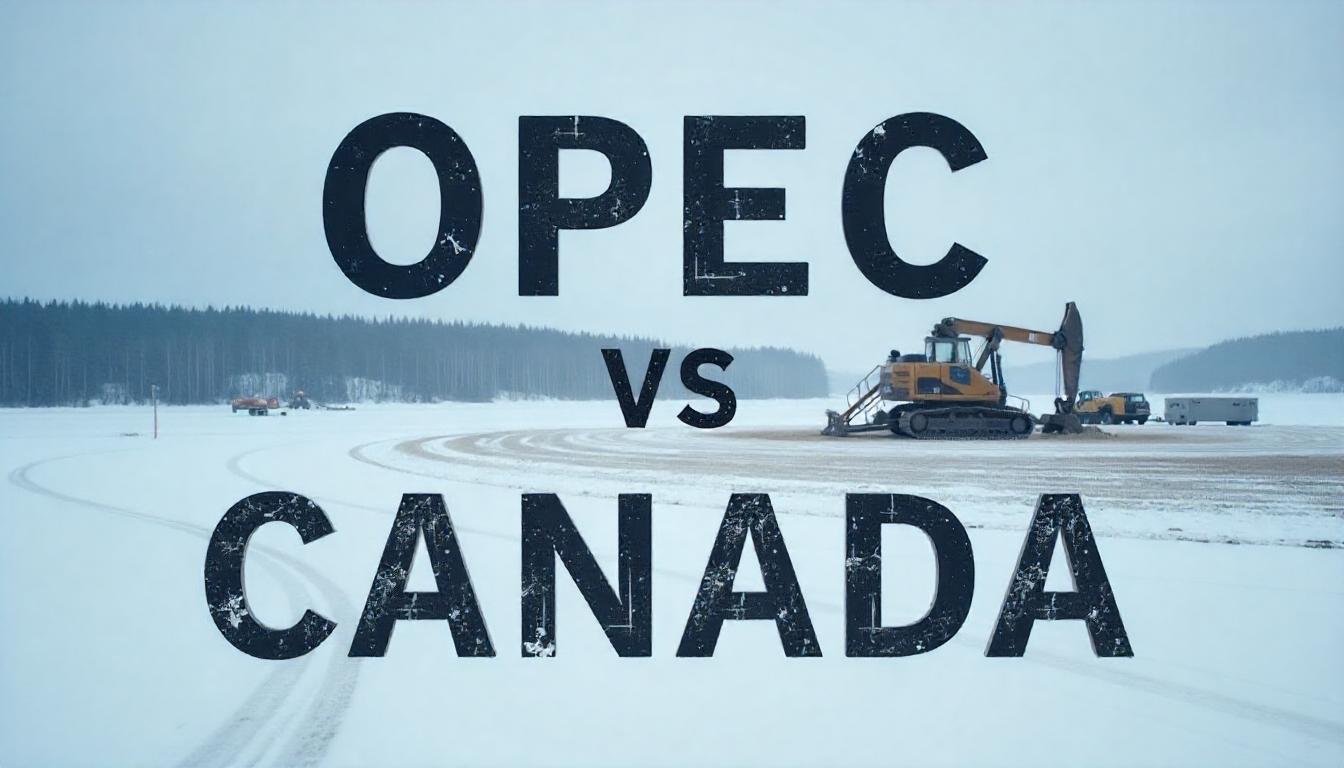In a world increasingly defined by global energy politics, Canada finds itself in a vulnerable position. With OPEC’s recent decision to cut oil production, global oil prices have surged—raising alarm bells not just for major importers like India and China, but also for energy-exporting nations like Canada.
At first glance, it might seem like good news for Canada, a country with vast oil reserves. Higher oil prices often mean higher revenues. But dig deeper, and the reality becomes more complicated. The OPEC oil shock has begun to ripple through various sectors of the Canadian economy, and not all of them are reaping the rewards.
The Key Moments That Changed the Trajectory of the 2025 Canadian Election
A Double-Edged Sword for Canada’s Oil Sector
Canada, particularly Alberta, is heavily reliant on oil exports. On one hand, higher global oil prices have boosted revenues for Canadian oil producers, leading to increased profits and renewed investment in the sector. The Alberta government has already reported higher-than-expected royalties, and some companies are accelerating hiring and expansion plans.
But there’s a catch: Canada’s oil infrastructure is not optimized to take full advantage of price surges. Pipeline bottlenecks, limited refinery capacity, and dependency on U.S. export routes mean Canadian crude often sells at a discount. The sudden spike in global prices doesn’t fully translate into higher returns for all Canadian producers.
Pain at the Pump—and the Checkout Counter
For everyday Canadians, rising oil prices have meant increased gasoline costs, heating bills, and transportation expenses. Inflation, which had begun to ease earlier this year, is once again creeping upward, putting pressure on the Bank of Canada to reconsider interest rate cuts.
Higher fuel costs also bleed into food prices, logistics, and air travel. Supply chains become more expensive to operate, and those costs often land squarely on Canadian consumers. This has revived fears of a second inflationary wave—just as Canadians were hoping for relief.
Manufacturing and Transport: Collateral Damage
Industries heavily dependent on fuel, like manufacturing, agriculture, and freight transport, are also bearing the brunt. Margins are tightening, and some businesses have started passing on costs to consumers or delaying planned investments. This could hurt job creation and slow down economic momentum, especially in central provinces like Ontario and Quebec.

The group of oil producing nations had been largely expected to stick to its already agreed 2m barrels per day cuts. Photograph: Ramzi Boudina/Reuters
Energy Diplomacy and Canada’s Global Position
The OPEC move also complicates Canada’s energy diplomacy. With the U.S. doubling down on energy independence and countries like Saudi Arabia strengthening their influence over global oil flows, Canada finds itself in a challenging middle ground—a resource-rich nation with limited geopolitical clout in oil diplomacy.
Calls are growing for Canada to diversify its energy exports beyond the U.S. and invest more in LNG (liquefied natural gas) and renewable infrastructure to reduce its vulnerability to OPEC-driven shocks.
Is a Recession on the Horizon?
While Canada is not on the brink of recession, economists are revising forecasts. Some predict slower GDP growth through late 2025, particularly if high energy costs persist and force the central bank to keep interest rates higher for longer.
The key risk is stagflation—a toxic mix of low growth and high inflation—which would test Canada’s economic resilience just as it tries to recover from post-pandemic disruptions and trade tensions with the U.S.
Conclusion: A Moment of Reckoning
The OPEC oil shock is a wake-up call. While Canada stands to gain in theory from higher oil prices, infrastructure gaps, inflationary pressures, and global energy politics have exposed the limitations of its current strategy. Policymakers now face a difficult task: balance short-term economic relief with long-term energy diversification.
Can Canada turn this challenge into an opportunity, or will it be left reacting to external forces it cannot control?





